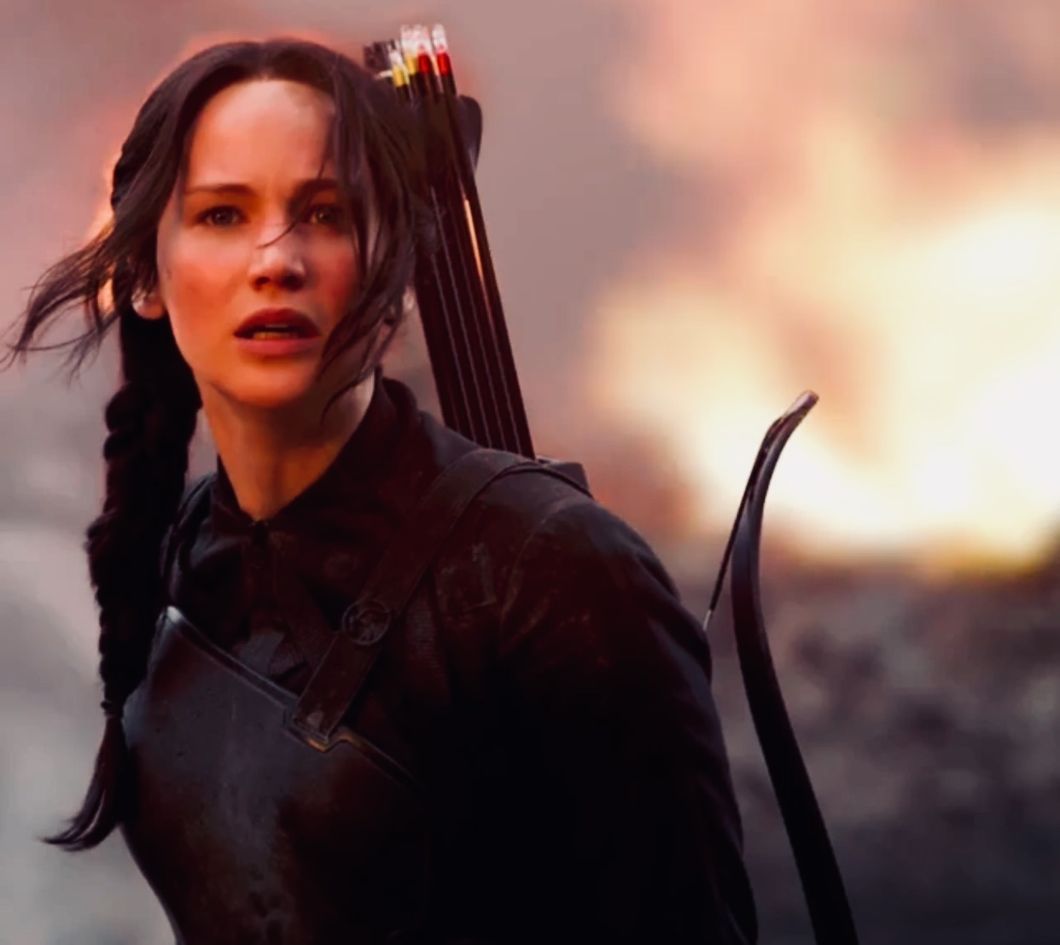Let's try an exercise. Raise your hand if you have read or watched the any of the following:
"The Hunger Games", "The Handmaid's Tale", "The Maze Runner", "The Giver", "1984", "Uglies", "The 100", "Fahrenheit 451", "Never Let Me Go", "Black Mirror", "Divergent", "V for Vendetta", "Animal Farm", etc.
In my fleeting teenage years, I have devoured all thirteen of these dreary stories and I could go on naming more books or movies in which I have indulged my darker side. Based on many "Best Sellers" lists, I am not alone in my (somewhat demoralizing) preferences for cultural consumption. That's right, you and I are entranced by the idea of the end of the world and an alarming post-apocalyptic norm.
But why are we so intrigued?
Here are three possible reasons...
1. The plots are cynically gritty. (And so are we).
As a general rule, Americans existing today experience the easiest lives in human history.
As another general rule, humans are instinctively worried about the future.
Mix those two rules together and you've got a whole bunch of people who have it so good that they are so convincingly paranoid that it will all be spoiled soon. It's like we are at the peak of the mountain of civilization and the only way to go on is to digress and have the mountain crumble beneath us. Like we have risen so high that the fall would be so great.
Truly, dystopias are dismal and simultaneously intoxicating. There's a very real appeal in reading about or watching a tomorrow that's undesirable. This may be because we realize that those in power are capable of bringing about society's "crumbling", especially when they have some new pressure of an Armageddon. Essentially, the plots seem like worst-case scenarios of the future with evaluations of America's hamartia; this almost feels candid to cynical readers and viewers.
2. The characters are sympathetically imperfect.
In situations of state-mandated cloning, televised battle royals, or Big Brother watching, we naturally want the "good guys" to win. However, when characters show their ethical flaws in these dire situations to survive, we must ask ourselves "who even are the good guys?" in a scheme of moral greyness.
A dystopian setting genuinely lets the players in the story explore the most remote and unspoken of ends of our psyches. These films and books create fascinating philosophical questions that portray all characters as distinctly human, with fears and blemished reactions to their hopeless circumstances.
3. The worlds are reasonably realistic.
We can easily imagine the series of poor decisions and the subsequent consequences that led from today's peachy-keen world to the dangerous or perhaps oppressive societal system in which the dystopia is set.
We hear the gentle echoes of oppression in modern America in futuristic Panem or Gilead.
Overall, the U.S. keeps coming back to the concept of today being our last good day and tomorrow being the beginning of our downfall. This proclivity represents more than just our own morbid curiosity (although that does play a role). These stories show our deep-seated anxieties of authority, our unanswered questions about human psychology, and our qualms about the limit of gluttony.
Given the certain murky-charred color scheme that our minds go to when we think of dystopias, it is surprising to look at our deep craving of chaos as a positive behavior in culture. Maybe, this whole ordeal may not be so glum. In fact, we may even learn from the parables we make up – but I guess we won't know until it is too late!
- Fahrenheit 451 And 1984: Dystopian Fiction As A Warning For The ... ›
- 6 Dystopian Novels Everyone Should Read in 2017 ›
- The Hunger Games - Wikipedia ›
- The Hunger Games (2012) - IMDb ›
- The Handmaid's Tale (TV series) - Wikipedia ›
- The Handmaid's Tale - Wikipedia ›
- 'The Handmaid's Tale' Recap: Season 2, Episode 8 ›
- List of dystopian literature - Wikipedia ›
- Dystopian YA Novel (@DystopianYA) | Twitter ›
- The 30 Best Dystopian Novels of All Time :: Books :: Lists ... ›
- The 20 best dystopian novels | ShortList ›
- Utopian and dystopian fiction - Wikipedia ›
- Dystopia - Wikipedia ›
















